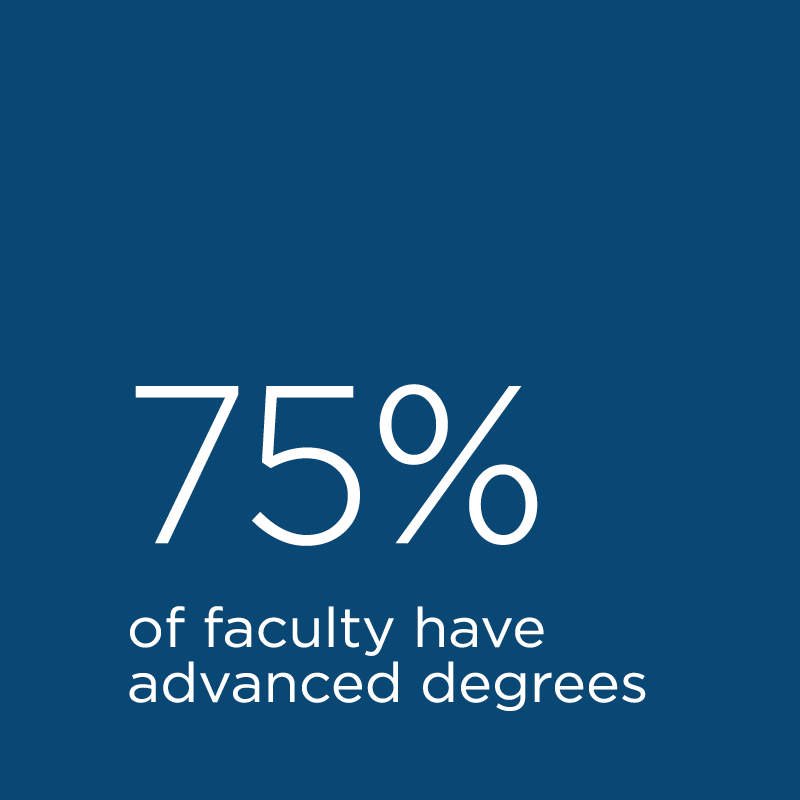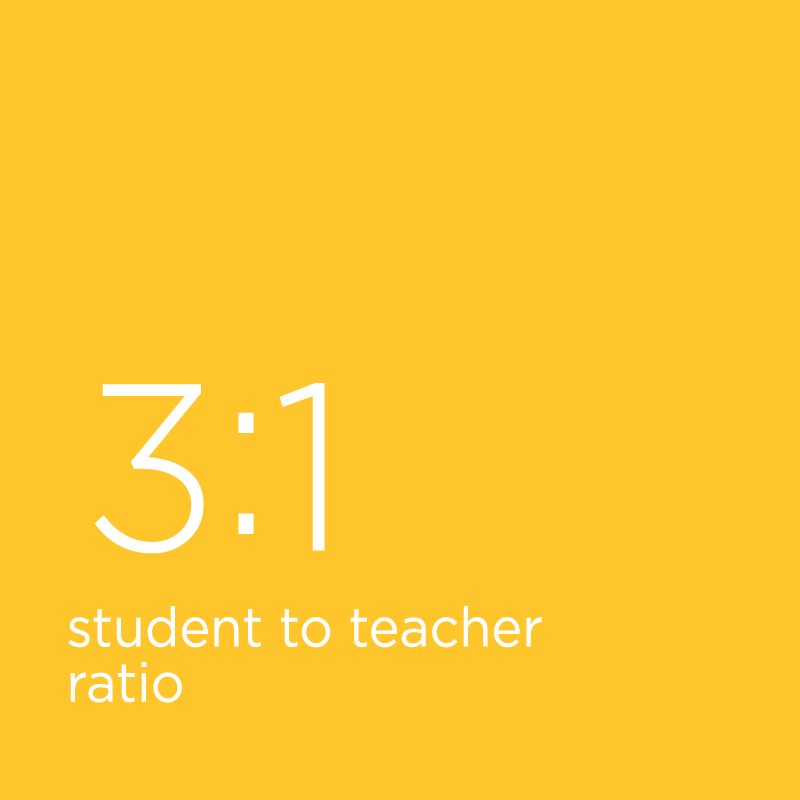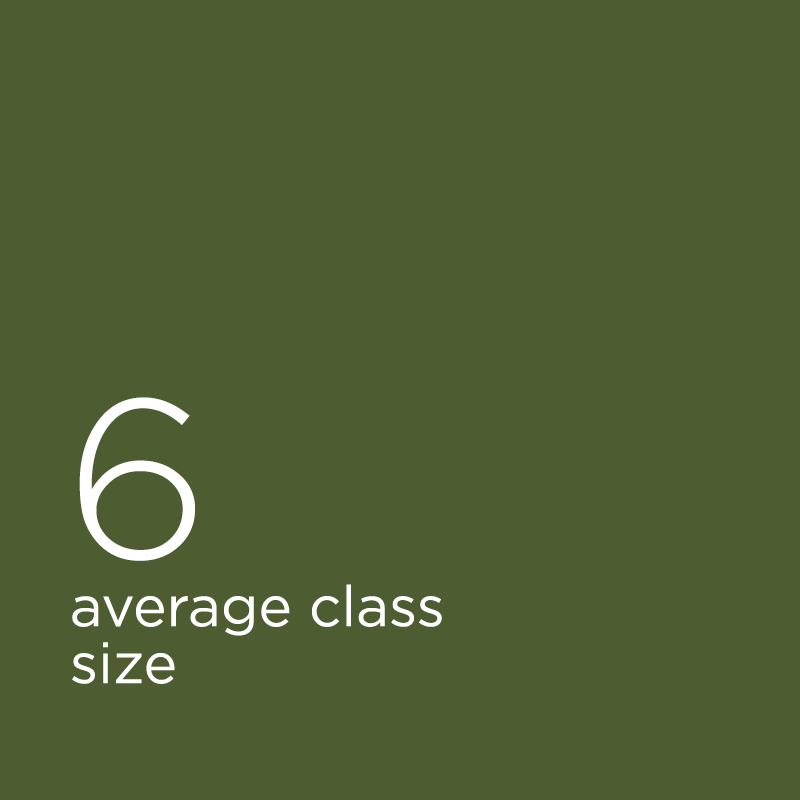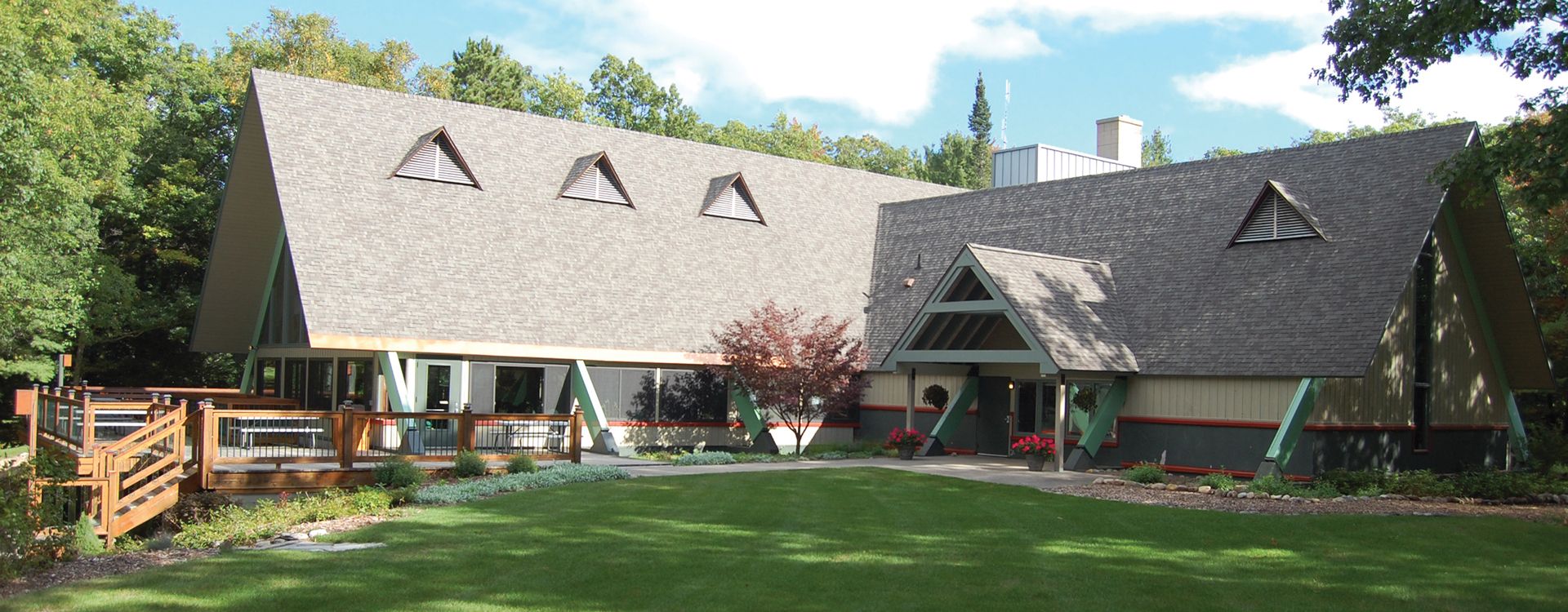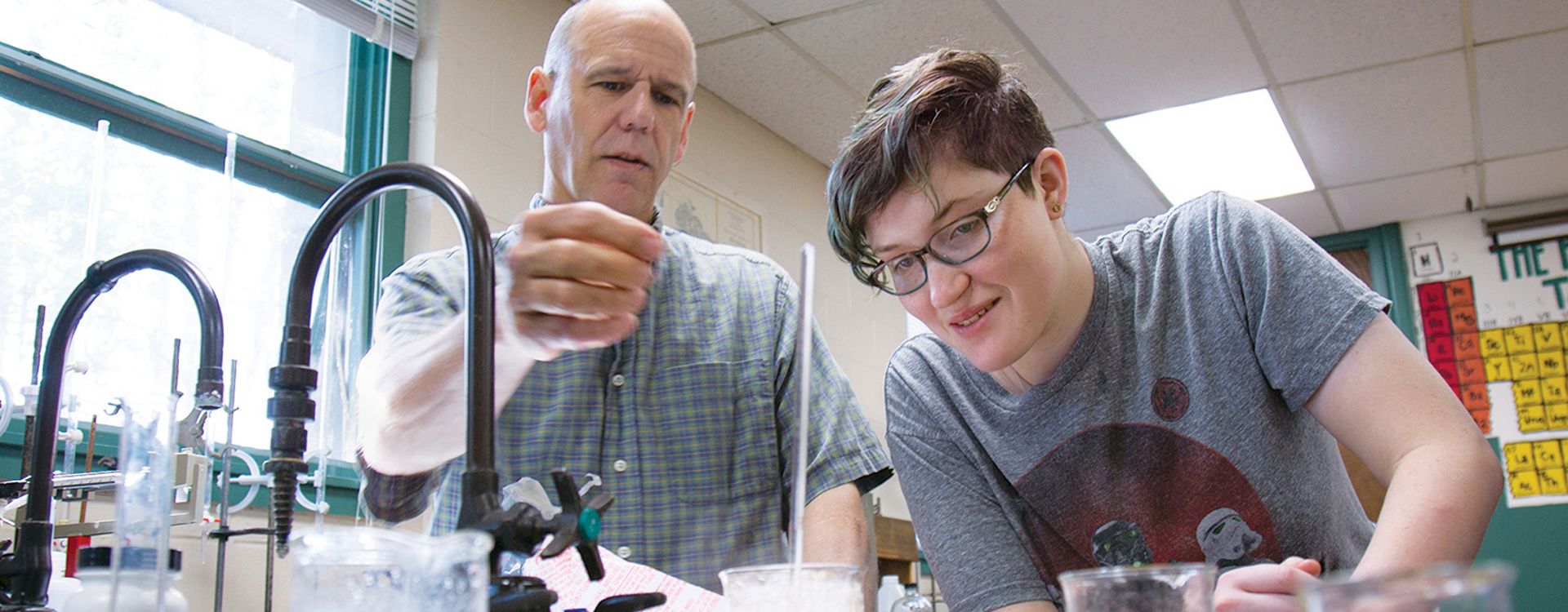Teachers Who Love to Teach
Our teachers have astounding passion and commitment for what they do. They are experts at working with students from all kinds of backgrounds and learning styles. Along with degreed experience in their academic field, they are schooled in life knowledge.
Teachers love teaching at The Leelanau School, because they have the creative freedom to design the curriculum for their students. They can adapt to the breadth of their students’ interests and abilities.
Leelanau’s rich supportive environment is a haven for intelligent and creative students: the bright, the talented, the inquisitive; those who feel unchallenged, restless, and anxious; and it is particularly beneficial for students with ADHD. The focus of our school program has always been based in experiential learning. We know it is a better way to learn.
Read what teachers who love to teach say about The Leelanau School:
Laura Hood, Art Department Chair, Music Teacher: The Leelanau School has an amazing faculty. We are all in this together and we support each other, look out for each other, have fun together, cover for each other and love each other. I get to work with some of my best friends in the world. Whenever I get the chance to observe my colleagues, I am blown away. There is so much passion for teaching and so much creativity and kindness in getting the message across.
Rob Dymond, Campus Safety and Technology Director (and alumnus): I feel when something is not working for our students, we have the unique ability to change gears or tactics to address the lesson or skill we want to teach from a different point of view. The ability to not follow cookie-cutter directions sometimes can benefit our students vs. teaching the same skill, the same way with no alterations or adaptions to make it work for the student who is in front of the teacher.
Joe Blondia, Science Teacher: The freedom to actually teach. Not toward a test, not with multiple choice answers, but with passion and excitement that creates interest and curiosity. The goal is not to get good at high school – but learning for the rest of a student’s life.
Anika Eisenstat, Coordinator of Residential Life: We give students a fresh start. We don’t confine a student to a box based on a diagnosis or behavior, rather we shape their identity that helps them find out how they can be successful with their strengths and challenges in the world. This works best when the student and their family trust us to push them outside of their comfort zone and allow us/student to be in control.
Jen Parker, Registrar and Administrative Assistant: We prioritize listening and communication. We work with them through any struggle they may have and figure out a plan to resolve it.
Kate Caliri, Dean of Admission: The faculty and staff know each student so well that they’re able to support them in unique ways both in and out of the classroom. Every adult on campus is able to guide students to be thoughtful about their choices, emphasizing the core values that are integral to the community. In more traditional classrooms, students may not have the same opportunities to learn the ways our students learn all day, all night, and all week long.
Brenda Wells, Maintenance and Housekeeping: I believe the staff does an awesome of interacting with the students. I think the students feel they can come and talk to anyone on campus and they will be heard.
Becca Dymond, Provost and Learning Skills Department Chair: I think we honor each student’s story and potential. We don’t try to measure or dictate that potential, but we try to alleviate obstacles to their growth as learners and community members.
Bruce Hood, Science and Math Department Chair, Science Teacher, Ceramics Teacher: I feel we offer unprecedented opportunities for students to connect with staff members in ways that are unavailable at other institutions. We provide individualized attention in some core areas, especially math and English. In these areas we accommodate gaps and remediation, acceleration and enhancement of the curriculum.
Laura Hood, Art Department Chair, Music Teacher: We are an accepting community. For some students, this is the first time they have had a real friend. This is the first time they have ever felt that an adult really cares about them and their successes. We really love the kids for who they are; all of their quirks and little oddities. And I think the students can feel this and begin to feel the same way about one another.
Amie Lipscomb: We have the staff and the time to treat students as individuals instead of numbers, to learn their strengths so we can build upon them to shrink or make irrelevant their weaknesses, and to teach them as a whole person instead of an educational product.
Elizabeth Blondia, Humanities Department Chair, English and History Teacher: Making students feel that they are an integral part of their own learning experience. We find out what they are interested in, who they are as people, and how they learn best and we incorporate that into the classroom. The students are people first and students second.
Rob Dymond, Campus Safety and Technology Director (and alumnus): To me, “a better way to learn” means addressing the strengths of the individual in order to teach them how to do the task. You exploit what each person does really well; therefore success or accomplishment of a task comes naturally.
Jen Parker, Registrar and Administrative Assistant: “A better way to learn” is practiced by being creative and thinking outside the box.
Joe Blondia, Science Teacher: The concept of “a better way to learn” is reinforced by some of our most successful alums coming back and saying, “I remember when we…” Students don’t often remember the material covered in a textbook in class, but they definitely remember how you make them feel as a learner. If that feeling is positive and they find a passion they can go anywhere.
Becca Dymond, Provost and Learning Skills Department Chair: “A better way to learn” means looking with bigger eyes at how we can impact the educational journey for our students. It means honoring that learning is the most natural process in the world, and we can create opportunities for learning through experiences and guiding the students as they make meaning from their learning and experiences. Day-to-day, this helps me prioritize my work in terms of the relationships I build with students and families. I need to consider the impact of my actions and decisions with students. It drives how I communicate. It informs the importance of my understanding of the expectations parents and students hold.
Bruce Hood, Science and Math Department Chair, Science Teacher, Ceramics Teacher: For those students who have not met with success in traditional lecture-based content delivery, we provide a better way to learn, by using multiple approaches to content delivery and thought processes. Specifically, we reduce the breadth of the material and teach students how to ask and respond to deeper questions that require reflection, the making of connections and the presentation of ideas. They have opportunities to express their understanding in multiple formats that are viewed as equivalent types of evaluation and are presented with the opportunity to choose.
Laura Hood, Art Department Chair, Music Teacher: I have been doing this for so long that I can’t imagine any other way to learn. Sometimes I am shocked at what happens in big school systems. We have connection with our students. Their hands are busy, and we help them to put their newfound knowledge into practice so it goes deep and is never forgotten.
Elizabeth Blondia, Humanities Department Chair, English and History Teacher: We know our students, which means we genuinely care about them. This leads to trust in the classroom, which leads to students feeling comfortable taking risks, which leads to growth. When I take the time to have a meaningful conversation with a student, which I try to do every day, instead of just getting right to work, I find that students are learning more.
Anika Eisenstat, Coordinator of Residential Life: The small class size allows us to get to know the student as a whole. Not just as a student, but as a person that has passions and talents that can help shape our larger world. We also get to develop relationships with the families that help them trust, that we have the best interests of their child at the forefront of our decisions.
Joe Blondia, Science Teacher: For Science, small class size means most of my classes fit in a van. We can go out into the National Park and see and do science. We can collaborate with scientists from the Park and the Glen Lake Association to show students WHY what we are learning is important and HOW it can be applied.
The way we teach won’t work for classes of 30. I can’t take 30 kids into the river or out on Glen Lake to water sample without having a huge negative impact on the environment we are trying to study. Small classes are agile and mobile and can take advantage of teachable moments and unexpected opportunities.
Brenda Wells, Maintenance and Housekeeping: Small classes allow staff to have more one-on-one time with each student. The students feel they don’t have to rush during class time and that there is time for them to convey their issues to staff.
Kim Speicher, former Spanish Teacher: I think that students crave attention and are able to receive support since we have small class sizes. Successes can easily be celebrated and areas of improvement can be met with one-on-one conversations.
Becca Dymond, Provost and Learning Skills Department Chair: Small class sizes allow each member of the faculty the time and opportunity to know each student as a person – their preferences, strengths, interests, motivations, passions, and fears. It also allows a faculty member to observe each student’s “tells” – those behaviors, expressions, or reactions that indicate a student needs something. Often, we know that a student has a need before the student recognizes it in him or herself.
The opposite is also true – the students get to know the faculty. It paves a path for students to engage in the classes as full participants in the teacher/student relationship because it matters to the teacher that it matters to the student.
On a pragmatic note, our students tend to be really good “crack slippers”. They know how to make their struggles invisible. The close ratio allows us to predict and avoid the “cracks,” encouraging authentic engagement and genuine attention for skill development.
Bruce Hood, Science and Math Department Chair, Science Teacher, Ceramics Teacher: The formative years of high school can be looked at in two different ways: Either as a time to accumulate facts and compete for an outcome, a tool to get you to the next thing at which you might be successful – or, it can be used to learn to develop healthy and supportive relationships. Understanding how those relationships affect your health and well-being, and can support you in cooperative learning that you will more than likely carry with you for the rest of your life. Only in a deliberate setting of small classroom size can the latter be hoped for. Those relationship skills enhance learning and the mastery of subjects as well as an understanding of how that subject fits into a larger picture of the world.
Laura Hood, Art Department Chair, Music Teacher: The connection between faculty and students is first and foremost. In order to have this personal connection with students, it is necessary to have small classes where you can look each student in the eye and see how they really are that day. Then you know what you are working with and how to help them move forward.
Chris Lipscomb, Residence Life Instructor: Small class sizes help to foster relationships between students and faculty. Communication is easier if there’s a relationship established.
Elizabeth Blondia, Humanities Department Chair, English and History Teacher: We have the time to tailor activities to the specific interests of students, which means they will be more engaged in their learning. We don’t have to have a one-size-fits-all approach to our lessons.
Jay Meyers, former Math Teacher: I have been able to foster countless breakthroughs in math because of one-on-one time. During these times students are ultra-focused and able to clarify misconceptions in real time. These misconceptions would probably have a much-delayed fix or never be fixed while in a large classroom setting.
Graydon Mitchell, former Admissions Director: Since the foundation of our Learning Strategies program is to provide learning support for all our students, everyone in the school has the opportunity to meet with their Learning Specialist to focus on daily class work and homework. Students receive a minimum of 225 minutes per week to work one-on-one or in a small group setting with a Learning Specialist. In addition to working on class and homework, they are working on time management, learning strategies, and organizational and study skills. For 100 minutes per week, teachers also provide the ‘tutorial experience’ where students can receive additional help in any subject area. Teachers are constantly assessing their students’ progress and communicating this information to other teachers. Because the class sizes are small, our teachers can see how their students are doing at a glance.
Becca Dymond, Provost and Learning Skills Department Chair: One of the things our kids need is the time and experience to develop an awareness of themselves. Finding themselves in the context of the community helps reveal that awareness for themselves.
Bruce Hood, Science and Math Department Chair, Science Teacher, Ceramics Teacher: Students are free to ask questions, sit in comfortable situations, and use a variety of tools such as audiobooks and manipulatives. Students often receive one on one support on a daily basis from a tutorial appointment or study hall support.
Laura Hood, Art Department Chair, Music Teacher: Sometimes my best teaching moments are at night during the evening tutorials when I get to sit one on one with a student and really dive into the exact points of their discovery. We both leave with a sense of satisfaction and fed creativity.
Elizabeth Blondia, Humanities Department Chair, English and History Teacher: The more supportive adults students have in their lives, the better. Teenagers don’t always connect with their parents effectively and if there are other adults who they trust, they are more likely to ask questions, seek advice, and make better decisions. Again, if there is trust in a classroom and a sense that the student is cared about as a person, they are more likely to have a positive academic experience.
Anika Eisenstat, Coordinator of Residential Life: We teach students how to do their laundry. We teach students how to be in community with each other beyond the computer screen. They learn how to appropriately engage in a conversation that leads to them being able to mediate their conflicts with peers.
Rob Dymond, Campus Safety and Technology Director (and alumnus): Life skills are taught through everything we do. More specifically, the skills are taught via modeling, mentoring, individual communication, group communication, disciplinary intervention, and personal counseling. Not one department or individual is responsible to pass along these skills on their own, rather it’s our community as a whole that passes along the vital skills for our students to learn and be able to show on a daily basis.
Kaz McCue, former Art Teacher: We have two faculties, teaching and residential life. This allows us to provide students with a ton of support.
Becca Dymond, Provost and Learning Skills Department Chair: Our most powerful opportunities exist from our modeling and the creation of opportunities for conversations around these skills.
Lynne Brach, former Food Service Director: The winter term is an ideal example of life skills training. Cooking, sewing, outdoor survival, digging deep into an era of history. Also, our residence life experience and staff are really on top of teaching the skills of conflict resolution and self-care.
Laura Hood, Art Department Chair, Music Teacher: Every adult in our community is willing to drop everything if there is a teachable moment for life. It may be helping someone through a challenging conversation or guiding someone to advocate more clearly for themselves.
Chris Lipscomb, Residence Life Instructor: Most life skills issues that I’ve experienced involved relationships: between students and staff, between students, and between students and their families. Guiding them through those has been the most challenging yet rewarding endeavor.
Kim Speicher, former Spanish Teacher: Through FAU family time, Council, class time, and our Res Life program, staff reinforces our school’s core values as well as takes the time to help students learn about how to learn, how to keep themselves healthy, how to make good decisions, and ways to learn.
Elizabeth Blondia, Humanities Department Chair, English and History Teacher: Res Life Curriculum (clean rooms, living respectfully together), and FAU time (small groups designed like families solving problems and having fun together), both of these teach valuable life skills. Leelanau students are learning from teachers who LOVE to teach
Anika Eisenstat, Coordinator of Residence Life: You will never walk into a mess hall at 8 am after a long shift feeling tired and then be energized by the people around you like you are at Leelanau. We all get energized by the people around us. If you have happy, positive, energized, passionate teachers, students will absorb the energy and want to participate no matter what they are trying to learn.
Anika Eisenstat, Coordinator of Residential Life: In our community, someone always has your back. You are never in it alone. You can always find someone to talk to that will truly listen too. We do our best to honestly communicate any issues with each other because when issues start piling up and people stop talking it affects our ability to be effective with our students and our coworkers.
Rob Dymond, Campus Safety and Technology Director (and alumnus): If there is an issue verbally stated out loud, I know there will always be someone within our faculty or staff willing to stand up and lend a helping hand. This staff is like none other. We support each other through the best and worst times of our lives. I personally consider all members of this staff as a part of my extended family. I would do anything, for anyone, if the end goal is to support or help my peers in any way. Knowing how supportive we are with each other also shows the lengths we would take to help a student out, regardless the situation, time of day, or the date the situation occurs.
Jen Parker, Registrar and Administrative Assistant: Everyone has the same goal of guiding students to a successful future.
Kate Caliri, Dean of Admission: When I came to The Leelanau School, I not only found a job I love, but I also found a family.
Joe Blondia, Science Teacher: Everyone finds someone to connect with. It doesn’t have to be your teacher or Dorm Parent.
Brenda Wells, Maintenance and Housekeeping:
Because we are strong and supportive of each other as a staff, it reflects on how our students support each other.
Bruce Hood, Science and Math Department Chair, Science Teacher, Ceramics Teacher: Many students have not understood success and how to celebrate it. Here it can be seen on a regular basis. Celebrating positive outcomes during morning meeting is one way to focus the community on the good.
Chris Lipscomb, Residence Life Instructor: In residential life, we have to look after each other. The student/faculty ratio is much greater at night, so we’ve got to work as a team, and I feel comfortable walking in to each dormitory and helping dorm parents, talking with students about anything, from the latest crisis in their lives to sports and movies.
Elizabeth Blondia, Humanities Department Chair, English and History Teacher: Because students feel supported, they aren’t as afraid to make and own mistakes. Our restorative justice approach to discipline allows students to learn how to apologize in an authentic way and to repair relationships. This is also an example of an important life skill as they are approaching adulthood.
Bruce Wallis, former Chef: The Leelanau school campus community is strong, close-knit, and very supportive of the students and each other.
Stewardship, Leadership, Awareness, Resilience, Integrity, Courage and Interconnectedness
Anika Eisenstat, Coordinator of Residential Life: We do our best to walk the walk and talk the talk. We won’t ask our students to do anything we aren’t willing to do ourselves.
Rob Dymond, Campus Safety and Technology Director (and alumnus): Our core values are like shipping lane markers. They help guide us and give us perspective on what direction we are going in throughout our journey together. Our core values give us perspective on what is important. Without core values, we would not be us as a school! Our core values make us individualized and different from any other boarding school.
Jay Meyers, former Math Teacher: The staff here has a long history together and has come to an unspoken agreement of our expectations and feelings. The leaders who show their values verbally and by example here are among the most impressive humans I have ever seen. We are engaging in our beliefs by our actions every day and are guided by great people who help foster these beliefs.
Jen Parker, Registrar and Administrative Assistant: We all agree on our core values and practice them every day.
Brenda Wells, Maintenance and Housekeeping: I have lived my whole life with a strong set of core values and I believe it is so important to have them and try your best to live by them
Laura Hood, Art Department Chair, Music Teacher: We teach our students to be much better humans through things like making and serving chicken soup to the homeless, playing music at the local nursing home, being aware of local foods, and awareness of the natural beauty around us.
Amie Lipscomb: Our core values are learned, re-learned, and practiced mindfully and purposefully during every exploratory program, every weekly council, and every morning quiet period and energize, let alone lived and demonstrated every day by our faculty and staff.
Elizabeth Blondia, Humanities Department Chair, English and History Teacher: Our implicit approach to our core values is important. We try to incorporate our values into everything we do (what we eat, how we communicate, what we teach in our classes, Winter Term activities, service projects, FAUs, and exploratory trips). Because we don’t choose one value and design an activity around it, then move on to the next value, it’s more authentic.
Anika Eisenstat, Coordinator of Residence Life: A unique, intentionally crafted arts program enhances our students’ development and personal and academic growth. The arts allow students to fully express themselves in a multitude of mediums that helps in the facilitation of processing the world around them and sharing their perspectives with the community and the larger world.
Rob Dymond, Campus Safety and Technology Director (and alumnus): We give our students numerous opportunities to take advantage of the arts. Students can participate in learning an instrument or take a turn on the pottery wheel to throw a cup or bowl. The arts come not only in music, art, or theater, but also in creative writing and poetry. Students can take advantage of the minimum or immerse themselves further based on their interest level or experience.
Jay Meyers, former Math Teacher: Mrs. Hood is an absolutely amazing music teacher that goes above and beyond for her students’ musical progress. Students are given several opportunities to shine and hone their skills with her support.
Jen Parker, Registrar and Administrative Assistant: The arts are very important and provide a safe place for our students to express themselves and grow individually.
Graydon Mitchell, former Admissions Director: Like other boarding schools, Leelanau has the resources to offer programs that go above and beyond the basic state requirements of a secondary school diploma, whether it’s art, music, or drama that’s built into the curriculum. Students have an opportunity to explore visual arts as well as performing arts. These programs give students a chance to explore career interests in a meaningful way while still in high school.
Joe Blondia, Science Teacher: We have a tremendous number of options for a small school because of the talents of the faculty.
Brenda Wells, Maintenance and Housekeeping: It’s always good for an individual to experience things outside of their comfort zone. It’s awesome how we implement art, music, and theater.
Lynne Brach, former Food Serviced Director: From my viewing platform in the dining hall, I get to listen to amazing music. I can hear students who are timid get stronger and stronger in their vocal performance and talented students develop new areas.
Bruce Hood, Science and Math Department Chair, Science Teacher, Ceramics Teacher: Being a small school allows everyone to explore who they are creatively. With our emphasis on process, it is not just a matter of making things. There are plenty of things in the world. We focus on the thought, process development, and completion of a piece, and then provide a place for that piece to arrive in the world.
Without the opportunity for students to experience songwriting for the first time and make the true connection between it and poetry, to be required to learn a monologue and understand the techniques of delivery, or how to actually see before they capture an image, we neglect the very basis of what it means to be an adolescent; that time of life where those portions of the brain are developing at that time. If there is any hope for our future in a technological age, students need to be able to express themselves emotionally through these mediums. Lawyers need to understand Shakespeare and doctors must go to the opera. Otherwise, polarity will find no common language.
Laura Hood, Art Department Chair, Music Teacher: I love that our arts programs invite students of all ability levels, including complete beginners. Our program is completely hands-on: students learn by doing, taking photos, doing a play, or playing music together. And each of these art forms is openly and genuinely celebrated within our community.
Elizabeth Blondia, Humanities Department Chair, English and History Teacher: This is the stuff of life. Many of our students have not been successful in an “academic” classroom, but they shine when creating. They feel confident, they feel good about themselves. Students feel alive.
Rob Dymond, Campus Safety and Technology Director (and alumnus): Our staff does a fantastic job looking at the whole student whether it’s the social, emotional, or physical health of a specific student. One issue could impede upon other areas of the student’s life. Therefore, knowing the whole student allows us to engage that student directly, with the necessary support they need to be successful.
Jay Meyers, former Math Teacher: Health is modeled at the Leelanau School by our outstanding kitchen staff. They spend a lot of effort and time in order to continue improving our community’s eating habits. Wellness is taught and improved throughout every part of our students’ daily schedules. Whether these lessons and experiences will be lifelong is up to the individual.
Jen Parker, Registrar and Administrative Assistant: Our daily activities, healthy food choices, and a nightly curfew with limited technology now will help the students in their future.
Joe Blondia, Science Teacher: We model this as a faculty and value it with time in the curriculum.
Brenda Wells, Maintenance and Housekeeping:
Wellness is so very important for our students to have a grasp on for it will, in the long run, affect their lives, and Leelanau and our staff do an awesome job of teaching this. The students are learning and are interested.
Becca Dymond, Provost and Learning Skills Department Chair: I think we try to model and make wellness accessible. This is a point of resistance for a lot of students.
Lynne Brach, former Food Service Director: This is my ongoing passion. During my time at Leelanau, I have been part of workshops on learning relaxation skills, the risks of sugar in our diets, composting and waste reduction, and healthy cooking.
Every day starts with yoga or walking or some kind of movement. We try to make sure our food program is one that is both healthy and inviting.
Laura Hood, Art Department Chair, Music Teacher: Learning about local foods through apple day. Residential life discussions about life choices, sleep health, relationships, healthy eating, and exercise. Every adult at the school has many conversations about health and wellness on a daily basis.
Elizabeth Blondia, Humanities Department Chair, English and History Teacher: Our food program, Morning Energize, Afternoon Activities, Winter Term opportunities to ski – these are all things that allow students to practice health and wellness. Whether they take advantage of them consistently or not, it is available in their lives. The adults in our community are good role models (eating healthy food and enjoying it, walking at lunch, enjoying yoga, skiing, pickleball, etc.) and students witness this on a daily basis.
Julie Zapoli, former Chef: We are raising good adults – we are not raising children. The Leelanau School is contributing to a way of teaching each student to be successful, healthy, caring, service-oriented adults.
